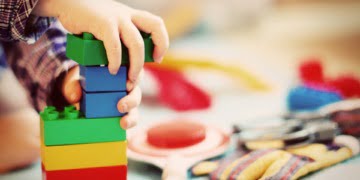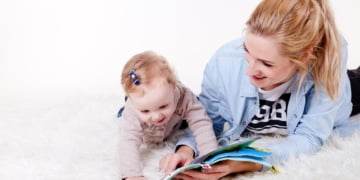The early years of life are crucial when it concerns speech and language development which most parents fail to understand. That is why most speech-language specialists emphasize parents to communicate more and more with their toddlers throughout the day.
Communication certainly does not mean that you begin talking in gibberish, no, you should indulge your child to talk during your routine activities. It will enhance your child’s cognitive skills, and ability to communicate, express feelings, and develop relationships.
Key Notes
- Language and speech development enhances other skills like cognitive, social, etc
- It begins with sounds and gestures followed by word and sentence formation
- Parents can help toddlers in speech and language development by reading books and storytelling
- Communicating with toddlers and responding to them when they try to express themselves also enhances their speech and language skills
Five Ways You Can Help Your Toddler’s Speech and Language Development
Following are some ways recommended by pediatric speech-language specialists that can help toddlers develop speech and language abilities;
1. Read A Book:
One of the most conventional and highly suggested methods to promote speech and language development is book reading.
It is because reading helps in expanding vocabulary and understanding sentence formation. Well, reading works not just for toddlers but helps people of all age groups comprehend character themes and emotions.
Focusing on toddlers, there have been a lot of studies conducted on their language and speech development. It has been found that children who are accustomed to reading from their birth will hear around 1.4 million more words than the ones who don’t.
So parents who curl up together with their child to read a book can achieve the following targets;
- Form a better relationship with their child.
- Introduce them to new sounds or voices by impersonating the character. This will help them recognize the voices of different life forms.
- You can also make them learn the names of colors by simply pointing and looking at the pictures while reading a book.
2. Work On Improving Your Child’s Phrases And Grammar:
Communicating with toddlers is also considered equally effective in developing their speech and language skills. Children that come under three years of age, express themselves through facial expressions or hand gestures.
So instead of talking to them similarly, parents should converse with them using short phrases or words.
This way your toddler will learn to string together words to form sentences. To do this you can adopt the following approaches;
- Always look at your baby when they make sounds and respond to them as if you’re in a conversation.
- Never talk to them in gibberish. Try to speak clearly so that they learn the correct pronunciation.
- Pointing at objects will also help in expanding your toddler’s grammar. You can point out things and teach them about shapes or colors.
For children who are already using short phrases, attention must be given to improving their vocabulary.
3. Have A Little Playtime With Your Child:
According to Andrea Lund, a speech-language pathologist, children learn best when they are playing.
They are quick in imitating words and actions when done joyfully. This way they are not only exposed to new words but are simultaneously developing their social abilities.
Playing with toddlers also helps parents know about what their child is interested in. You can even act out different situations with your child instead of playing with toys. It will not only enhance the child’s speech skills but will also boost their confidence.
However, you must remember to slow down your pace when interacting with toddlers as you don’t know which word might attract their attention.
4. Focus On Sounds When Learning New Words:
A common practice that is advised by most pediatric speech and language coaches is to focus on sounds that make words. In simpler words, focus on the sounds that make up the word, not on the spelling.
For instance, if your child finds a stick or anything when playing outdoors, split the word based on the sound so that it is easier to learn. This approach is called “phonological Learning” and has proved fruitful in enhancing toddlers’ ability to learn and understand words.
Parents can also use this method when reading books with their children as it will later contribute to their academic success.
5. Exercise Dialog By Indulging Family And Friends:
Conversation can be practiced in several ways however this technique can be great for children who are two to three years old.
Communicating with family other than parents help children learn conversational skills. This back-and-forth dialog can be made interesting by telling stories or by simply listening to what they’re saying even if it is incomprehensible.
Most specialists suggest parents make their children watch conversations between others. It will help the child learn words through sounds, gestures, or facial expressions.
These are simple yet practical ideas that can yield positive outcomes but it is your time and interaction that can help your toddler with speech-language development.
Read also: Social and Emotional Development in Early Childhood




























